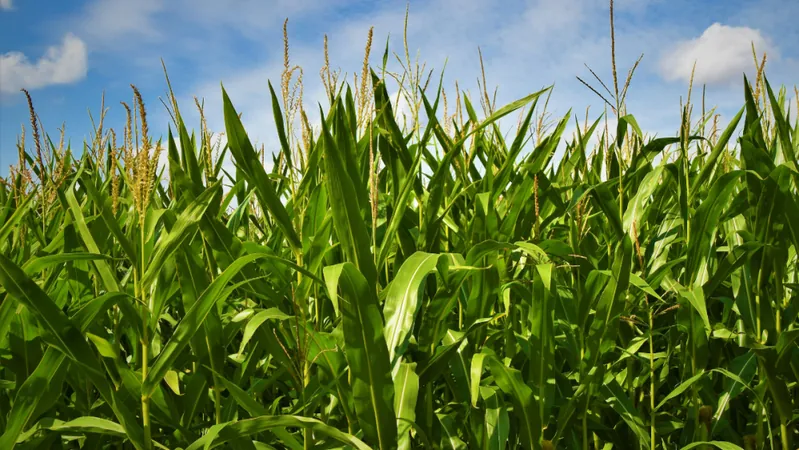
Surprising Link Between Insecticides and Weed Problems Revealed by New Study!
2025-03-21
Author: Sarah
Introduction
In a groundbreaking study from Penn State University, researchers have unearthed a startling connection between the use of insecticides and an increase in certain weed populations. While insecticides are intended to protect crops from pests, this research raises important questions about their broader ecological impact, specifically on weed growth.
Study Overview
Published in the journal PeerJ, the study analyzed the effectiveness of preventative insecticides applied at planting time against an integrated pest management (IPM) approach, which recommends using insecticides only when specific pest problems are identified. Notably, the research also looked at how the incorporation of cover crops—plants grown primarily to protect and enrich the soil after harvesting cash crops—affects the weed dynamics associated with these treatment strategies.
Findings
The findings were striking: by the third year, fields that only received preventative insecticides, without any cover crops, exhibited a marked increase in weed populations, particularly marestail. However, those fields that incorporated cover crops did not face this weed escalation, suggesting that cover crops can play a critical role in mitigating the adverse effects of insecticides.
Expert Insights
John Tooker, a professor of entomology and one of the paper's authors, speculated that the rise in weeds might be attributed to a reduction in beneficial insects that typically feed on weed seeds. "Preventative insecticides might be hindering these natural weed regulators, leading to increased weed dominance," he explained.
Implications for Growers
These revelations are crucial for growers, especially as they develop management strategies for their fields. With the rampant proliferation of weeds resistant to glyphosate—a commonly used herbicide—farmers are in urgent need of diverse and effective weed control methods. "As weeds evolve resistance, relying solely on herbicides is becoming increasingly ineffective," warned Elizabeth Rowen, lead author of the study and assistant professor at the University of California, Riverside.
Research Methodology
The research team conducted extensive field trials using corn and soybeans over a three-year period at the Penn State Russell E. Larson Agricultural Research Center. They implemented three treatment strategies: applying preventative insecticides, using an IPM plan with targeted insecticides, and maintaining no insecticide treatment at all. Additionally, each treatment was tested with and without cover crops.
Observed Factors
The researchers observed factors such as cover crop biomass, predator insect diversity, weed seed consumption, and overall crop productivity throughout the study. Their compelling evidence indicates that adopting an IPM strategy can significantly benefit large-scale growers, who often prefer to apply all treatments upfront to minimize field visits. "Walking the fields to identify emerging issues can lead to more efficient pesticide use and improved crop health," Tooker emphasized.
Conclusion
This study not only highlights the complex interplay between insecticides and weed management but also underlines the importance of diverse agricultural practices. As weed resistance continues to challenge farmers, innovative strategies like IPM and the integration of cover crops could be vital in safeguarding crop yields and ensuring sustainable farming practices. In conclusion, as the agricultural landscape evolves, adapting these approaches may be essential for effective pest and weed management. Farming institutions, researchers, and agronomists must collaborate to navigate these challenges, ensuring both productivity and ecological balance in our farming systems.




 Brasil (PT)
Brasil (PT)
 Canada (EN)
Canada (EN)
 Chile (ES)
Chile (ES)
 Česko (CS)
Česko (CS)
 대한민국 (KO)
대한민국 (KO)
 España (ES)
España (ES)
 France (FR)
France (FR)
 Hong Kong (EN)
Hong Kong (EN)
 Italia (IT)
Italia (IT)
 日本 (JA)
日本 (JA)
 Magyarország (HU)
Magyarország (HU)
 Norge (NO)
Norge (NO)
 Polska (PL)
Polska (PL)
 Schweiz (DE)
Schweiz (DE)
 Singapore (EN)
Singapore (EN)
 Sverige (SV)
Sverige (SV)
 Suomi (FI)
Suomi (FI)
 Türkiye (TR)
Türkiye (TR)
 الإمارات العربية المتحدة (AR)
الإمارات العربية المتحدة (AR)